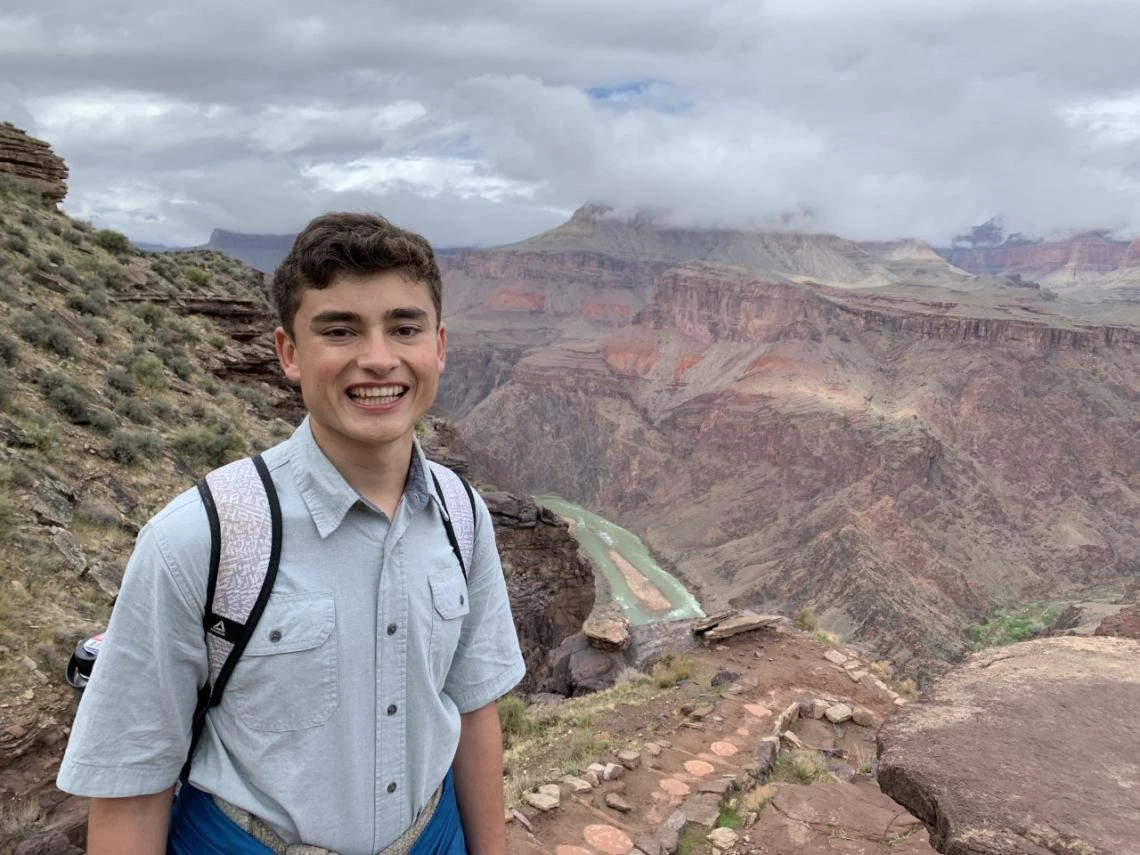Daniel Casanova: Planning for a Better Future

What is your major/year?
I am a sophomore at the University of Arizona seeking a BS in Sustainable Built Environments with a minor in Environmental Studies.
What are you involved in on campus or in Tucson?
I am currently an organizer with UArizona Divest, a student-led effort, because I believe that the University of Arizona can be a leader in sustainability and social responsibility through their financial investments. I have previously been a part of Students for Sustainability and organized for Arizona Youth Climate Coalition.
What sustainability issues are you most passionate about?
Throughout my time at the University of Arizona, I have come to realize the importance of money and how intertwined economics is with sustainability. Any solution has to be economically sound or it won't happen. There has been great progress in the economics of sustainability because green technologies and solutions will make more sense, especially in the long run. We vote with our dollar, and changing our investments and expenditures will change the world.
More specifically, I have recently become very passionate about urban planning. Well-designed cities make economic sense and are more sustainable. There are a lot of exciting opportunities in this field that I can't wait to learn more about.
How does your major shape your outlook on sustainability?
Put simply, tackling climate change ultimately means reducing greenhouse gas emissions one way or another. With a sector-based approach, we are able to zero-in on the largest contributors of greenhouse gas emissions and devise realistic solutions. Transportation currently accounts for approximately one-fourth of all greenhouse gas emissions. My major sees this as an opportunity to think differently. It aims to tackle the problems such as urban sprawl, a lack of public transportation, pollution, and health through a planning lens. Better planning along with better technology can target systemic issues across sectors.
My minor in Environmental Studies has also given me a broad overview of how climate change is related to almost every industry and sector in society. Reducing emissions when it comes to the built environment is highly effective and is very interesting to me, but it is only one of many areas that need professional focus in the process of overcoming climate change.
What has been your favorite environment-related experience at the university?
Through all of my organizing at the U of A, I have been able to meet interesting, like-minded individuals. We have attended and put on a lot of events together and have won several victories, but we have also become close friends. That has definitely been the best part.
On what day did you learn the most in your experience with environmental activism?
On Wednesday September 9, 2020, the City of Tucson voted to declare a climate emergency. This came almost a year after our first strike in Tucson where hundreds of people from all walks of life came and demonstrated at El Presidio Park demanding change. Since then, the Arizona Youth Climate Coalition, along with several other groups in Tucson, worked with elected officials to make this happen. It wasn't easy, and at times the progress felt too slow, but we did it together. This day reaffirmed the value of patience when it comes to activism. Change can feel slow, but hard work and time will prove to be rewarding.
